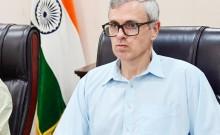Indian Prime Minister Manmohan Singh's visit to Myanmar this week ended with an invitation to democratic leader Aung San Suu Kyi to visit India, a sign that India hopes to rebuild ties dampened by its association with the former military junta.
During the PM's five-day visit, Suu Kyi was asked to deliver the Jawaharlal Nehru memorial lecture the next time she would visit New Delhi, for which the Nobel laureate said, "I hope I will be able to take up the invitation not before too long," media reports said.
The meeting occurred just before Suu Kyi left for Thailand on Monday, which is her first trip from Burma in 24 years.
So far, the veteran activist has shown diplomacy, if not restraint, in her attitude towards India. However, she has explicitly made known her "disappointment" at the country for not expressing enough support for the democratic movement in Myanmar.
Also, it remains to be seen if India's move inconspicuously loosen any strong ties Suu Kyi may have with India. Prior to spending two decades under house arrest, Suu Kyi had spent her youth studying in Delhi, where her mother was posted as ambassador.
Shyam Saran, ex-ambassador to Myanmar and a former Indian foreign secretary, illustrated Suu Kyi as "strongly sentimental - almost familial" in her relations towards the country, the Hindustan Times said.
As of now, most Myanmarese view India as an economic partner rather than "a source for political inspiration", an irony given that the country was among the first to epitomize the value of democratic freedom.
Singh's recent visit implies several reasons, including cementing ties with the nation currently undergoing potential democratic reforms. Besides trying to elude widening Chinese influence in Myanmar, it's also likely that India is hoping to benefit from the positive environment particularly after Suu Kyi's election win in April.
International Business Times spoke to Dr. G.Vijayachandra Naidu, an expert in Southeast Asian affairs, to discuss about the potential ramifications following the PM's meeting with Suu Kyi.
Dr. G.Vijayachandra Naidu is a professor of International Studies at Jawaharlal Nehru University, New Delhi.
IBTimes: Prime Minister Manmohan Singh has reportedly extended the olive branch to Myanmar democracy leader Aung San Suu Kyi, inviting her to visit India. In your opinion, can this be viewed as an opportunistic move by India?
NAIDU: This is the normal courtesy that is normally extended to the main opposition leader. Moreover, India has a long and close association with Suu Kyi and her parents. Of course, if the current democratisation process were to continue unhindered and if her popularity remains unaffected, there is a good chance that she might legitimately win majority seats in the next general elections and take over the mantle of Myanmar leadership. That prospect New Delhi cannot afford to ignore.
IBTimes: Do you think the PM has made an attempt to explain to her during the meeting about India's stand when it hosted a visit for junta chief General Than Shwe in 2010?
NAIDU: I am sure she would understand India's compulsions and I don't think the PM will go to such an extent of explaining its policy. In fact, every country that maintained close links with and has had security/economic stakes in Myanmar has done, including China and most ASEAN nations, and there is nothing unique about India hosting the military strongman and at that time head of the government, Gen Than Shwe.
IBTimes: Suu Kyi said that her visit to India will take place "not before too long". What does this denote? Do you think she is apprehensive about her visit to India or is she reflecting her hard feelings with India turning a blind eye over her house arrest?
NAIDU: Of course not. India had been in touch with her even during her detention. One need not read too much into such phrases. I am sure she will visit India soon and deliver the lecture, which would be a great opportunity to build her constituency in India. Whoever is at the helm of affairs in Myanmar would understand the criticality of India and the need to accommodate its interests. It is not an exaggeration that probably Myanmar needs India more than India needs Myanmar. The links between the two countries are one of the oldest, more than two millennia - that include cultural, civilisational, linguistic, religious, etc.
IBTimes: India has apparently maintained a long-standing association with the junta, to offset the overwhelming presence of China in the region. Will Suu Kyi's visit affect our ties with Myanmar?
NAIDU: India changed its policy in 1993 after a brief interlude of supporting democracy. China's close links with Myanmar's junta was just one of the factors that influenced this change in approach. One should keep in mind that just because India seeks to get closer to Myanmar it would simply dump China. China is too important in many ways to be ignored. In fact, India has to tread cautiously to ensure that its engagement will not create unnecessary suspicions in Beijing. Yet, Myanmar is one place Indian and Chinese interests intersect strongly.
IBTimes: Suu Kyi's trip to Thailand on Monday is her first overseas visit in 24 years, thereby signifying confidence that the new government is likely to pave the way for impending reforms in the country. What sort of significant changes do you foresee?
NAIDU: There are profound changes taking place both at the political and economic levels. The pace of reforms are so rapid that the country may not be able to cope after having remained isolated for long with a backward economy and a creeking infrastructure. If the raised expectations of common people are not met, the country can descend into chaos, which may only pave the way for the military to stage a comeback because of failure of civilian leadership. Indeed, that is how military stepped in back in 1962 when the democratically elected government failed to control rapidly spreading armed insurgencies by ethnic minorities and communist. Thus, the present exuberance, however tempting should be tempered. So, it is the responsibility of not just India but all those countries who want to see democracy taking roots, country remaining politically stable, and prosper economically. Perhaps the best way to advance its interests, India should find partners such as Japan and some ASEAN countries that share common objectives.
In regard to Suu Kyi's overseas trip, it is more of a signal to the world that the government is willing to accommodate her and her followers are serious about political reconciliation. Otherwise, the ban on her party (because it boycotted the 2010 elections) would not have been lifted so that she could partake in the democratic process.












